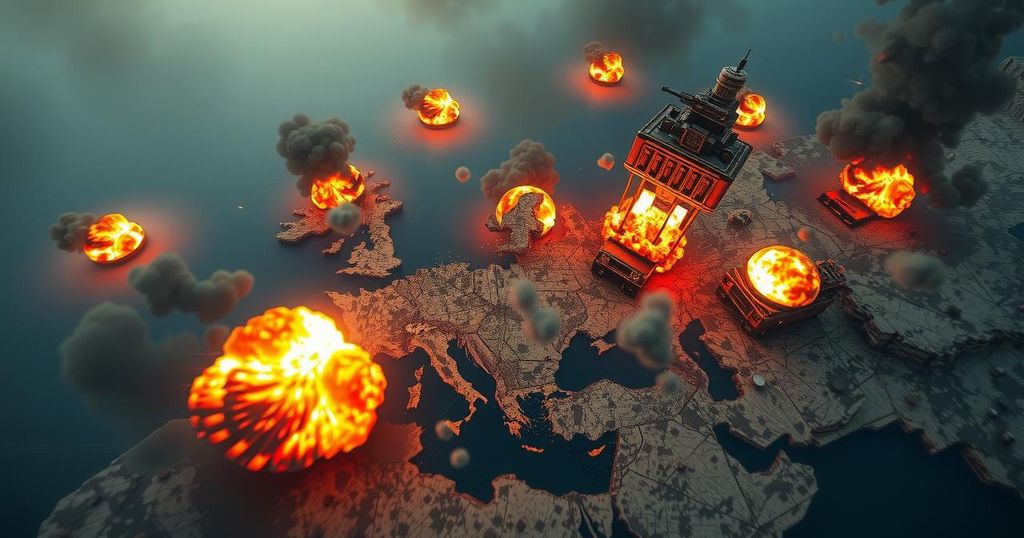Israel’s Military Operations Against Iran Signal Escalating Regional Conflict
Israel has launched military strikes targeting Iranian assets amid ongoing conflicts in Gaza and Lebanon, with reports of explosions in Syria and Iraq linked to these operations. The situation highlights a dangerous escalation involving multiple nations, drawing international scrutiny and calls for restraint from peace organizations. The backdrop of escalating violence raises urgent questions about the role of the United States and the need for diplomatic interventions.
Escalation of violence in the Middle East has manifested through recent Israeli military operations targeting Iran amidst ongoing conflicts in Gaza and Lebanon. Reports indicate that Israeli forces conducted strikes against various sites in Tehran, near Iran’s capital, and other explosions linked to these operations were reported in Syria and Iraq. The Israeli Defense Forces (IDF) justified these actions as responses to sustained attacks from Iranian interests over previous months. Iranian officials assert that their missile strikes on Israeli targets were retaliatory measures following the assassination of key Iranian military leaders by Israel. Presently, Israel’s military engagements span multiple nations, namely Palestine, Lebanon, Iran, Syria, and Iraq. The ongoing conflict has already resulted in significant casualties and widespread displacement, with more than 153,000 injured or killed in the Palestinian territories amid the IDF’s extensive military campaign. The U.S. administration has been alerted regarding these developments, prompting warnings from peace organizations that emphasize the risks of further escalation. Calls for restraint and dialogue highlight the need to address the conflict without exacerbating regional tensions. The situation remains complex as international actors navigate their roles in seeking resolution, with heightened concerns regarding U.S. involvement in the emerging confrontation between Israel and Iran.
The context of this escalating conflict involves long-standing tensions between Israel and Iran, characterized by military operations, retaliatory strikes, and geopolitical maneuvers. In recent months, hostilities have intensified, especially following the October 7 attack that purportedly led to a series of counterstrikes from both sides. The involvement of multiple states, including those with strong ties to Iran, complicates the scenario, prompting fears of a broader regional conflict. Continued military actions from Israel come amidst serious allegations of human rights violations in the territories occupied, which has drawn widespread criticism from international observers. The dynamics of U.S. foreign policy further intertwine with these events, as American weaponry and political support play crucial roles in sustaining these conflicts.
The ongoing military actions by Israel against Iranian targets reflect intensified hostilities that risk further embroiling the region in conflict. As violence extends across multiple nations, the humanitarian implications are severe, with thousands displaced and casualties mounting. Peace groups have warned against U.S. involvement, urging a shift toward diplomatic solutions to mitigate the potential for a wider confrontation. The necessity for independent and critical media coverage, such as that provided by Common Dreams, is paramount in these turbulent times to ensure diverse perspectives reach the public and inform discussions aimed at fostering peace.
Original Source: www.commondreams.org




Post Comment